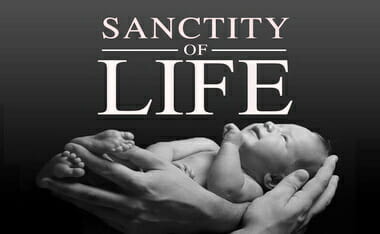Because of the political season, I had missed the passing of a giant in the Intelligent Design community passing away a couple months ago. I have used his arguments well in debating I.D. online since the late 1990’s in forums like Space Battles and Volconvo (back in the day). I also have a couple excerpts from his book Zombie Science, that I do not remember what I used them for. Surely it was a debate online somewhere. Those will be at the end.
I have a post that includes Jonathan Wells on a panel that decimated some leading evolutionists here: Michael Behe & Stephen Meyer Destroy Challenge to Flagellum Motor. Cross Examined has a good interview with him HERE.
Here is the late Dr. Wells Bio:
Jonathan Wells (1942-2024) received two PhDs, one in Molecular and Cell Biology from the University of California at Berkeley, and one in Religious Studies from Yale University. A Senior Fellow at Discovery Institute’s Center for Science and Culture, he previously worked as a postdoctoral research biologist at the University of California at Berkeley and the supervisor of a medical laboratory in Fairfield, California. He also taught biology at California State University in Hayward.
Dr. Wells published articles in Development, Proceedings of the National Academy of Sciences USA, BioSystems, The Scientist and The American Biology Teacher. He is the author of Charles Hodge’s Critique of Darwinism (Edwin Mellen Press, 1988), Icons of Evolution: Why much of what we teach about evolution is wrong (Regnery, 2000), The Politically Incorrect Guide to Darwinism and Intelligent Design (Regnery, 2006), and The Myth of Junk DNA. He was also co-author with William Dembski of The Design of Life (FTE, 2008). His last solo book, Zombie Science (DI Press, 2017), showed how evolutionary theory — “though empirically dead” — continues to stalk our scientific and educational institutions. Dr. Wells also did research and writing on developmental information in embryos that is outside of, and inherited independently of, their DNA.
(Many archived articles linked here: DISCOVERY INSTITUTE)
A favorite article of his I love, and used an excerpt from for a paper in a philosophy class, is this one:
The video is the full Icons of Evolution movie, here is the description:
Some of these icons of evolution present assumptions or hypotheses as though they were observed facts; in Stephen Jay Gould’s words, they are “incarnations of concepts masquerading as neutral descriptions of nature.” Others conceal raging controversies among biologists that have far-reaching implications for evolutionary theory. Worst of all, some are directly contrary to well-established scientific evidence. Most biologists are unaware of these problems. Indeed, most biologists work in fields far removed from evolutionary biology. Most of what they know about evolution, they learned from biology textbooks and the same magazine articles and television documentaries that are seen by the general public. But the textbooks and popular presentations rely primarily on the icons of evolution, so as far as many biologists are concerned the icons are the evidence for evolution.
Some biologists are aware of difficulties with a particular icon because it distorts the evidence in their own field. When they read the scientific literature in their specialty, they can see that the icon is misleading or downright false. But they may feel that this is just an isolated problem, especially when they are assured that Darwin’s theory is supported by overwhelming evidence from other fields. If they believe in the fundamental correctness of Darwinian evolution, they may set aside their misgivings about the particular icon they know something about. On the other hand, if they voice their misgivings they may find it difficult to gain a hearing among their colleagues, because (as we shall see) criticizing Darwinian evolution is extremely unpopular among English-speaking biologists. This may be why the problems with the icons of evolution are not more widely known. And this is why many biologists will be just as surprised as the general public to learn how serious and widespread those problems are.
There is a part two to the above, but it is more of a lecture form well-worth the watch as well:
In his latest book Zombie Science, biologist Jonathan Wells asks a simple question: If the icons of evolution were just innocent textbook errors, why do so many of them still persist? Wells gave a presentation about Zombie Science at the book’s national launch party recently in Seattle. (see more about the presentation here https://evolutionnews.org/2017/06/jon…) Watch as Wells explores a new wave of icons walking the halls of science while putting some familiar corpses back in the grave. New topics include DNA, the human eye, vestigial organs, antibiotic resistance, and cancer. Looking past the current zombie outbreak, Wells offers a hopeful vision of science free from the clutches of materialist dogma. Wells himself is something of an iconoclast, railing against the tyranny of science’s Darwin-only advocates. His first book, Icons of Evolution, became an international hit by dismantling the outdated and underwhelming “proofs” of evolution that have littered textbooks for decades. For doing so, he was attacked by Darwin’s defenders and became one of the most hated figures of the intelligent design movement.
Icons of Evolution’s website is here. I pray it is kept up:
Icons of Evolution
Home of Biologist and Iconoclast Jonathan Wells
I have read the bulk of his writings, but if you are not familiar with him or Intelligent Design, I suggest this book for your shelf:
A couple remembrances by his colleagues:
- The giant in his own right, William Dembski, wrote a remembrance of Wells here: “Remembering Jonathan Wells, a Key Figure in the Intelligent Design Movement”
- Casey Luskin likewise posted his thoughts as well: “Remembering a Colleague, Mentor, and Friend: Jonathan Wells”
Here are those promised quotes, I created them in my Microsoft Word, September 2017:
Eighteen Winged Dragonflies.
UBX is one of a family of genes called “Hox genes,” which affect head-to-tail development. In 2007, Donald Prothero published a book defending evolution. The book included a photo of a four-winged fruit fly to illustrate how “big developmental changes can result from small genetic mutations.”99 The book also claimed that modern four-winged dragonflies evolved from ancient dragonflies that had more wings, and it featured a drawing of an eighteen-winged dragonfly together with a four-winged dragonfly. According to its caption, the drawing illustrated “the evolutionary mechanism by which Hox genes allow arthropods to make drastic changes in their number and arrangements of segments and appendages, producing macroevolutionary changes with a few simple mutations.”100
In November 2009, Prothero (together with Skeptic magazine editor Michael Shermer) debated Discovery Institute senior fellows Stephen Meyer and Richard Sternberg. During the debate, Sternberg pointed out that eighteen-winged dragonflies never existed.101 A few days later, Prothero responded in a blog post that Meyer and Sternberg had “completely missed the point” of the illustration. According to Prothero (apparently having forgotten the number of wings in his drawing), “the text clearly points out that the twelve-winged dragonfly is a thought experiment, an illustration to show that a simple change in Hox genes allows the arthropods… to make huge evolutionary changes by simple modifications of regulatory genes.”102
But the text in Prothero’s book did not identify the eighteen-winged dragonfly as a “thought experiment.” Instead, it stated, “Experiments have shown that a few Hox genes cause arthropods to add or subtract segments, and other Hox genes can produce whatever appendage is needed.” Thus the “macroevolutionary transition from one body form to another with a completely different number of segments and appendages is a very easy process.”103
In 2013 Prothero published another book, Bringing Fossils to Life, which claimed that “a tiny change in Hox genes can make a big evolutionary difference.” Indeed, “the fossil record confirms this idea that simply switching on or off Hox genes allows abrupt changes not only in appendages and wings, but even in the number of body segments.”104
Two pages later the book reproduced the 2007 drawing of an eighteen-winged dragonfly, with a caption that stated, “Fossils demonstrate that many early arthropods were capable of adding or losing wings or other appendages…. This cartoon of real fossils shows how this multiplication or reduction process can rapidly produce entirely new body forms from a single [Hex] mutant.”105
So in 2009 the eighteen-winged dragonfly was an imaginary thought experiment, but in four years it evolved into a real fossil! Isn’t zombie science amazing?
Jonathan Wells, Zombie Science: More Icons of Evolution (Seattle, WA: Discovery Institute Press, 2017), 72-74.
Four-Winged Fruit Flies
NORMAL FRUIT flies have two wings. Behind each wing is a tiny “balancer ” that vibrates rapidly during flight to stabilize the fly’s movements. In the 1970s, geneticist Edward Lewis discovered that by artificially combining three separate DNA mutations in a fruit fly embryo he could transform the balancers into a second pair of normal-looking wings92 93 To some people, Lewis’s discovery seemed to corroborate the neo-Darwinian theory that DNA mutations provide the raw materials for evolution, and biology textbooks started using photos of a four-winged fruit fly to show students what mutations can accomplish.
But the mutant four-winged fruit fly lost its balancers in the bargain. Worse, the mutant wings do not have any flight muscles. So the four-winged fly has great difficulty flying and mating, and it cannot survive for long outside the laboratory94 95 It is a sideshow freak, an evolutionary dead end.
Yet some textbooks in 2000 featured photos of four-winged fruit flies, and some continue to do so. For example, Freeman’s 2014 Biological Science includes a photo of the four-winged fly, accompanied by text stating that mutations “can turn a segment in the middle part of the body into a segment just like the one that lies in front of it.” So instead of having balancers “the transformed segment now bears a pair of wings.” No mention of the fact that the mutant wings are effectively dead, or that the fly is severely handicapped.96
Jonathan Wells, Zombie Science: More Icons of Evolution (Seattle, WA: Discovery Institute Press, 2017), 71.





